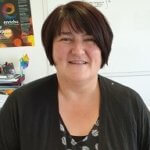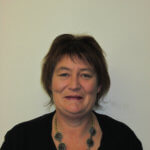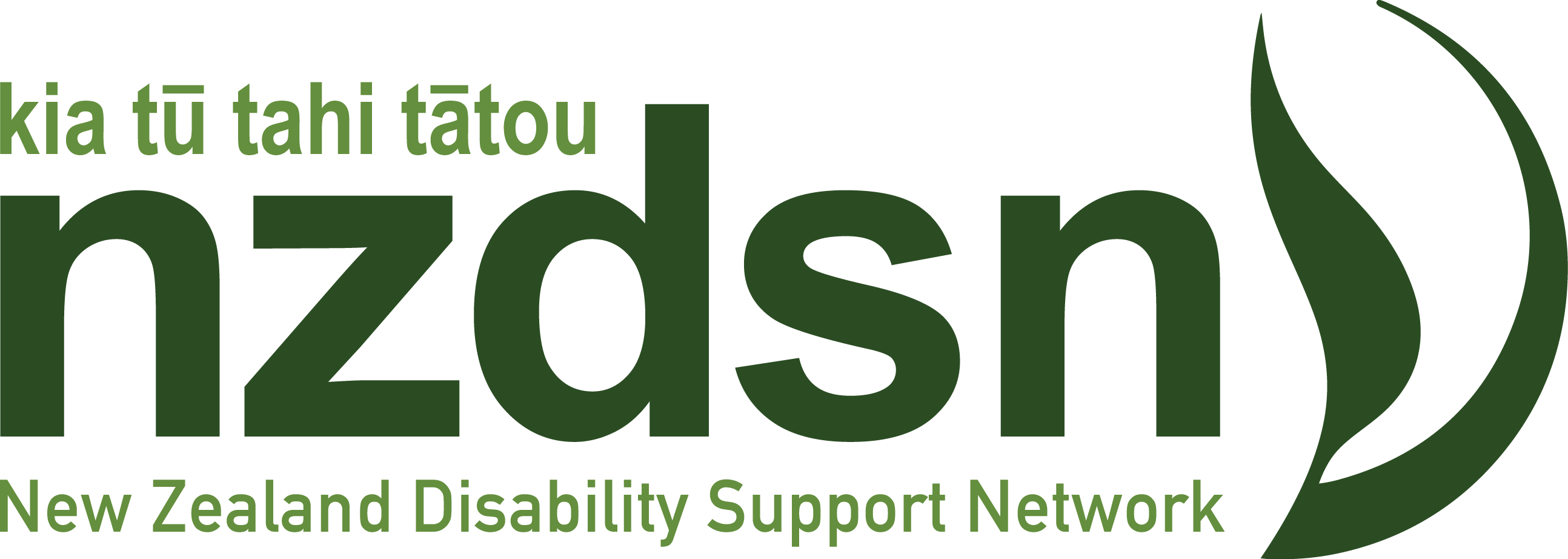Employment Services in New Zealand are represented within NZDSN through the Employment Advisory Committee (EAC) the chair of which reports directly to the Board. The committee uphold the former Association for Supported Employment in New Zealand (ASENZ) principles as the core principles central to all aspects of Supported Employment provision in New Zealand.
Background
The seeds of ASENZ were first planted in Auckland in 1993 when a small group of people, each feeling a little isolated and unsupported as they pioneered the development of supported employment services, set out a plan of action. Top of the agenda was the need for support, to share and exchange ideas, and recognition of the need to develop more collaborative and structured approaches to ensure the growth of supported employment in New Zealand.
Supported employment was [and remains] at the leading edge of the development of vocational services for people who experience disability; the kinds of changes that have occurred within the disability sector – not to mention the job market have been huge and the founder members of ASENZ were very positive change agents.
Since those early times ASENZ grew into a nationally recognised organisation with a formal structure that represented the interests of supported employment providers throughout New Zealand. Its membership included a cross section of interests including providers, consumers of services, Supported Employment personnel, professionals and employers.
In October 2013, ASENZ became a Committee within the New Zealand Disability Support Network (NZDSN).
What is Supported Employment?
Supported Employment has developed as a viable and successful alternative in the provision of vocational services for people with disability. It will always be an evolving concept in New Zealand, and must never succumb to complacency. Consequently there is a real need to constantly promote, innovate and maintain its profile on the community and political agenda, so that the interests of people with disability may be recognised and well served.
Supported Employment is a concept that looks to assist people disadvantaged in the labour market due to a disability to reach their career aspirations; to improve and expand inclusive employment opportunities and services for all people with a disability. The process involves more than just finding a job for a person. Supported Employment practitioners provide various services to two key client groups:
- People with disabilities
- Employers
The Employment Advisory Committee will ensure that:
- Supported Employment agencies and organisations are clearly represented and have a visible presence within NZDSN.
- The supported employment training and qualifications are maintained and developed for supported employment practitioners.
- The Principles, Practice and Standards of Supported Employment are further developed through international research, are evidence based and in collaboration with all stakeholders, for example, MSD, DPOs, Platform, Inclusive New Zealand.
- The employment support training and qualifications are maintained and developed for supported employment practitioners.
See here for our Terms of Reference:
Principles
Over the past few years, ASENZ have developed and refined the following principles of Supported Employment. These are now accepted as the core principles and are central to all aspects of Supported Employment in New Zealand.
The Principles of Supported Employment
- Open waged employment: Supported Employment is based in the open labour market; same rewards, same conditions as everyone else.
- Individualised – based upon partnership: Supported Employment services are expected to meet a client’s individual support needs (whether employer or job seeker). They fundamentally represent a partnership.
- Direct access to employment pathways: Supported Employment services will facilitate direct access to the labour market (optimally within 4 weeks) developing and utilizing a precise job/person match – without insistence upon prolonged “getting ready” activities or pre-vocational training.
- Inclusive services: socially inclusive outcomes: No clients will be “screened out” or denied service based upon a perceived severity of challenge or disadvantage.
- “Life match” through choices: Work is a means to an end and should complement and enhance a person’s life and well-being, and the achievement of their aspirations and potential.
- Ongoing workplace support: Support services and strategies are designed to achieve the best possible outcome for both employer and employee, and promote the development of natural supports, which may lead to the withdrawal of formal support services.
Strategic Direction 2016 onwards
The strategic direction will be in line with the NZDSN strategic plan. Read more
Code of Ethics
In August 2014, a Code of Ethics and Code of Practice for Practitioners in Supported Employment Services was developed. See the link below for this information.
The Employment Advisory Committee
The Committee Members consist of representatives from agencies/organisations that provide supported employment services
Karen Scott (Enrich+ – Te Awamutu) Chair
Simon McCosh (CCT – Dunedin)
Louise Deane (Job Connect – Christchurch)
Margaret Reilly (Poly-emp – Auckland)
France Aziz (Community Connections – Wellington)
Keay Bishop (Workbridge – Wellington)
Dianne Rogers (Blind Foundation – Auckland)
Any queries regarding Employment Support should be referred to the NZDSN Office Manager admin@nzdsn.org.nz Tel – 04 473 4678. Should you wish to contact any of these members directly, please ask our team at NZDSN for contact details.
Meet Our Team

Karen Scott — Chair
Enrich+
Chair for the Employment Advisory Committee and CEO of Enrich+, Karen has a background in strategy, programme and project management, operational management and community development within the disability, harm minimisation and justice sectors. Karen has worked across local and central government but feels at home and believes to be best suited working within the not for profit sector. Karen joined the team at Enrich+ in early 2017 as the Executive Leader Services, and recently moved into the CEO role.
Enrich+ has a vision of “a life like any other” which is something that Karen is very passionate about and believes that her values match with the vision and the values of Enrich+ which makes it an organisation that she is proud to work for.
Karen is a strong advocate for working collaboratively with others to maximise outcomes and increase capability. She has a passion for bringing individuals and organisations together to pool resources and skills to improves outcomes.

Louise Deane
Jobconnect
Louise has a background in Law and Psychology. She has been working with people to realise their vocational goals for over 15 years, initially in London working with deprived communities and people who experience sensory and physical disabilities.
Working with Comcare Jobconnect for 11 years, Louise has gained a good understanding of the issues for Supported Employment Providers in New Zealand and specific for those who live with mental illness and addictions. She is currently a Service Manager for the Jobconnect Supported Employment Service.
Louise is passionate about Supported Employment and believes in the work of NZDSN to maintain and promote Supported Employment as a discipline.

France Aziz
Community Connections
France is originally from Tours, a city in the Centre-Val de Loire region of France where she completed a Bachelor degree in Human and Social Sciences with a major in Psychology. During her studies, France worked as a support worker and it was here that her passion to support people with disabilities started.
Since moving to Wellington 6 years ago, France quickly started to volunteer for Autism New Zealand and to work for IDEA services where she became the leader of Active, a vocational service for youth with intellectual disabilities. From here she began working with Community Connections and quickly moved into a management role to lead the supported employment and transition service’s team which used to be called Emerge Supported Employment and is now known as Employment Connections.
France is really passionate about people being able to live a good life which is one of the reasons France is excited to join the NZDSN Employment committee. She hopes to contribute to the delivery of high-quality employment support services in collaboration with the other members of the committee.

Simon McCosh
CCT, Dunedin
Simon has a background in education, the arts, and has been with CCT supporting people with learning disabilities and/or Autism in Dunedin for nearly 10 years.
CCT is a charitable trust that supports 260 people across Otago and Southland and Simon’s role is Service Manager for Supported Employment, Transition, and Community Participation managing a team of 10 staff. Being on the Employment Advisory Committee allows Simon to be a conduit to the local NZDSN Supported Employment Provider’s Forum that he chairs and provides the opportunity to promote and represent supported employment as a service he feels very passionately about. Micro Enterprise Start-Ups are two areas of particular interest.

Margaret Reilly
Poly-Emp, Auckland
Margaret is originally from a small town on the west coast of Scotland where she was a youth worker. She completed her social work degree in Glasgow and moved to NZ in the late 80’s. Since then she has been involved in the health and disability sector for a number of years in a variety of roles.
Margaret has been with Poly-Emp employment and Advisory service for over 10 years. Poly-Emp is quite a unique service as they have a partnership relationship with two Education providers ( MIT and Unitec in Auckland). They provide employment services for students with learning disabilities who complete a certificate in Employment Skills.

Keay Bishop
Workbridge, Wellington
Kaye has 27 years in the employment services sector as an employment consultant, service manager, area manager and senior manager. During that time, I helped develop and implement services and published research in transition from school to work for young disabled people; gained national sector relationships through 6 years as a Director then Chair of ASENZ; was an active member of the working party that put the Certificate and Diploma of Employment Support on the NZQA Framework; graduate of the Diploma of Employment Support; professional member of CDANZ.
Disability awareness through professional and lived experience. Genuine understanding of employer and jobseeker needs and pain points in gaining and maintaining employment relationships. Employment consultant practitioner best practice standards. Delivering training to employment consultants and large employers. Qualified assessor for the previous Certificate and Diploma of Employment Support. Successful tender writing and interpretation of contracts into best practice.
Kaye is currently the Customer Insights and Quality Specialist and a member of the senior management team for Workbridge. I work collaboratively across the organisation and with the Workbridge Council to ensure customer insights, evaluation, strategy and quality services are understood, implemented and maintained. I provide customer insights into decision making and new business development. I developed and manage the online induction programme for all our new staff.

Dianne Rogers
Blind Foundation, Auckland
Dianne Rogers is the General Manager Policy and Advocacy at the Blind Foundation, and the Access Alliance Coordinator. Since 2013, Dianne has led the Blind Foundation’s policy service on issues such as solutions to making New Zealand 100% Accessible, through to better access to eye health services. Key to this is bringing evidence and data together with people power to create change. Her policy practice motto is, “nothing about us, without us”.
As the former Executive Director of the Western Australian Government’s Office of Seniors’ Interests Dianne led policy development on ageing, including the state/territory National Healthy Ageing Strategy initiative and positive ageing policy innovation for the state. Since moving to New Zealand in 2004, Dianne has held a number of senior government leadership roles in the health sector, and at central and local government levels.
She was the General Manager, Older People’s and International Policy at the Ministry of Social Development, she was responsible for New Zealand’s population ageing policy, international agreements and relations. As well as these roles, Dianne was also Director, Auckland Policy responsible for the social sector relationship in Auckland and advising the Auckland Plan, in particular boosting skills and employment in the Tamaki Makaurau. Dianne holds a Bachelor of Arts in Psychology, a Bachelor of Social Work and Master’s Prelim in Social Policy from the University of Western Australia.

Jonathan Mackie
CCS Disability Action, Christchurch
Jonathan has worked across the New Zealand disability sector over the last two decades. His first role within Supported Employment was in Northland with Northable. His role then was funded by an early version of the MSD community participation contract where participants would gain NZQA credits, then assisted to find paid employment. In 2005 he joined Workbridge and coordinated and facilitated many Job Clubs within the Wellington region, which supported people with seeking successful paid employment.
Over the last 13 years his work with CCS Disability Action has been originally as a Transition Coordinator then later as a Service Manager with various teams based in Christchurch and the West Coast of the South Island. Recently he has been working for the National Office as a Project Coordinator. Part of this role has been to support staff with the role out of our new national contract in Employment Services. I have used tools such as Schoology to provide online learning for staff along with face to face trainings as well.
Along with this he has been part of the national development facilitators over the last 10 years with providing training to new and existing staff on the philosophy and values as an organisation.
Jonathan has experience in speaking publicly about the issues that disabled people experience and is always keen to see what we could do better and services that could possibly fill identified gaps. He willingly steps up when these things need to be done, and actively take responsibility.
